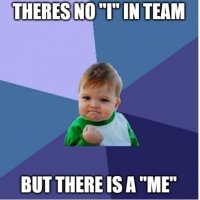I've been in situations, leadership situations, where there was no winning formula. All I could do was minimize the negative. Fighting for a neutral result. The absolute best possible outcome. If I'd served 26 years in the Hollywood version of the military, there would have been some magical formula each time things got desperate, some one-in-a-thousand miracle finish. But I didn't work for Hollywood, didn't have their scriptwriters.
I only mention this because some folks with no experience in a particular field, whether the military or professional / college sports, may be forgiven for thinking there's "always a way if you are good enough and work hard enough." That's their education via the movie theater. And that's a bad education. Sometimes there's just no good option.
And yes, bad or neutral outcomes are always on the leader. Buck stops here. Command responsibility. Lonely at the top. All true.
And yet, if you really want to understand what happened, you're going to have to push beyond that simplistic view, and see which specific parts failed, and in what ways.
I assure you, on a team of 100 lads with 11 coaches, when something fails, it will be because there are multiple specific points of failure. One bad piece, even if it's the key piece (head coach, QB, whatever you pick as the key) even the key piece can not alone cause a meltdown of the sort we saw in 2nd half of the UGa game or throughout the Kentucky match. That kind of outcome is invariably the result of multiple points of failure.
I personally believe it started--both weeks, both games--in three or four places: quarterback, offensive line (including TEs and RBs when given blocking/protection roles), and offensive coordinator. Perhaps receivers as well. Could be four places. Which came first? Or did they all fail more or less simultaneously? Impossible for us outsiders to know. But almost for sure, all three or four of those elements broke down at roughly the same time, both weeks. And then, like a house of cards, the rest came apart, ultimately even the defense (which is the strongest part of the team). Even the defense failed toward the end. Lads were giving up. Even on the defense.
So is all that on the head coach? Maybe. Certainly, he has command responsibility, but maybe it is actually something he directly did or failed to do. Then again, maybe not. We outsiders can't know for sure.
Absolutely, the responsibility for fixing whatever failed (every part of whatever failed, however many parts there are) that responsibility rests with the head coach. He drives the leadership team, the other coaches, to get fixes going. He has to have the vision to show them a new and better destination.
But it might be true that, at the point of failure, Jeremy Pruitt simply didn't have any winning hand to play. He may have been stuck, at that point.
*shrug* We are outsiders, looking in. Yes, we're all Volunteers, loyal fans, but we're still outside the day-to-day of the team. We have no idea what happens 164 of the 168 hours in each week. We don't know hardly anything. Almost nothing. We can only see outcomes, on the field, for a few hours. And then it goes dark again on us.
So I"m gonna hope Jeremy's the right head coach to figure this out and find a good path forward, toward the kind of football he and we want Tennessee to play. I'm gonna hope he has assistant coaches who are able to be part of forging that path. I'm gonna hope he has mostly the right players to take that path.
There's nothing else I can do. Just gotta hope for the best. And give them support as they try.
Go Vols!




